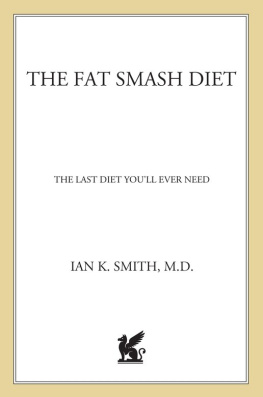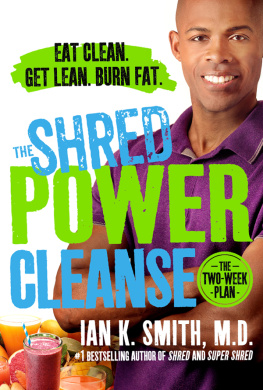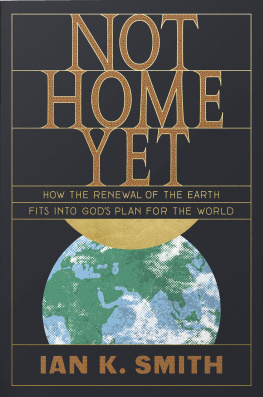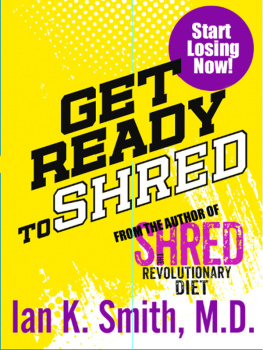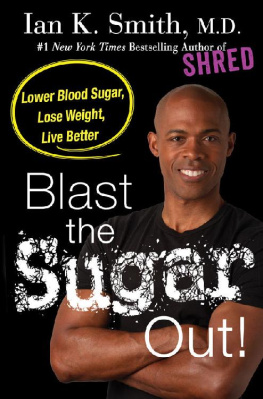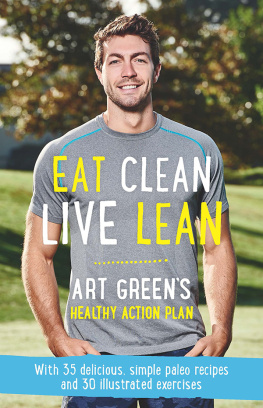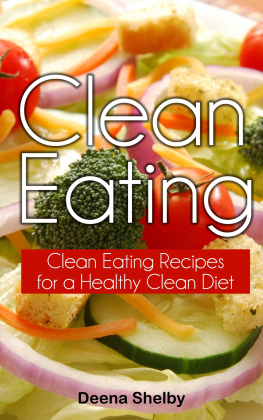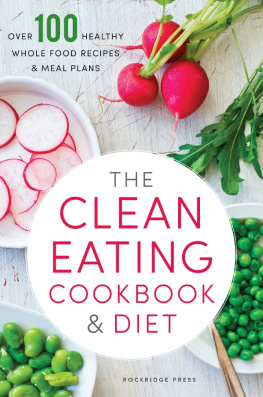I am always grateful to those who inspire and support me in my work. Since my book SHRED: The Revolutionary Diet, I have built a loyal and reliable following, particularly those in my robust and productive Facebook groups: SHREDDER Nation, TheClean20, and Clean & Lean. (Join us!) I learn from them as much if not more than they learn from me. They inspired me to write this book and Im forever grateful. While there are tens of thousands in this group, and Im forever grateful to all of them, I wanted to give a special shout-out to a few: Beverly Simon, Felicia Tate, Sandra Chiassonmy faithful and energetic admins who keep the trains runningas well as Rosemary Delarosa, Kimberly Slaughter Cunningham, and Kevin Snyder. Thank you all for inspiring me and others, and for always being there when people in the groups have questions or need encouragement. Most of all, youve led by example and that is worth a million words. Youve literally changed and saved thousands of lives, and it simply doesnt get much better than that!
I have always professed that understanding nutrition and successful weight loss is a lifelong process. I continue to believe that. This is especially the case when trying to create programs that are doable, effective, scientifically based, and sustainable. Despite the numerous books Ive written on weight loss and nutrition, I continue to read, research, listen, and learn. Thus, the impetus for Clean & Lean.
One of my faithful followers messaged me about using my most recent program, The Clean 20, with the concept of intermittent fasting. She had been doing it on her own and had found improved results, especially after hitting a plateau. At the same time, one of my best friends, Nazr Mohammed, a former NBA player, decided he wanted to try intermittent fasting in the form of time restricted eating, in which he ate only between the hours of noon and 8 p.m. He had heard of others doing this and they had found success.
I asked both of them questions and listened intently to their methods, challenges, and insights. Two very different peoplea woman in her sixties on the verge of retirement and a former professional athlete who had spent the vast majority of his life training and eating for peak performancetrying a similar eating strategy. I learned a significant amount and that led me to plunge into the available research of intermittent fasting, its benefits, strategies, and effects not just on weight, but on other important health biomarkers.
Intermittent fasting, while not heavily researched in humans yet, has shown promise in animal studies and via anecdotal evidence in humans. Clean eating, the basis of my last book, The Clean 20, has also shown particular benefits not just on the scale (average of 10-pound weight loss in twenty days), but in lowering cholesterol levels, glucose levels, and blood pressure. So why not combine the two and see if the benefits would be synergistic? It made complete sense to do this, and from the standpoint of execution it was a strategy I felt most people would be able to follow long enough to get results and return to if they wanted to tune up their bodies at other times.
Regardless of how well created or executed, no one diet plan works for everyone. Our bodies are different in so many ways, from the way we metabolize certain foods to the way we accumulate fat and the way we lose it. But Clean & Lean is a program that I believe the vast majority of people will be able to follow to achieve measurable results. Im trimming the fat (literally and figuratively) and getting right to the point so that this might be one of the simplest nutrition books youll ever follow. Get ready to welcome a new you in thirty days!
Ian K. Smith, M.D.
April 2019
The concept of intermittent fasting (IF) is not particularly new, but over the last several years it has garnered a lot of attention and new research. It is what it sounds likeperiods of fasting alternating with periods of non-fasting. While the vast majority of research has been conducted in animals, there have been more human-based studies the last couple of years that have analyzed the biological and physiologic changes that occur once a person participates in an IF program.
There are two major types of IF eating schedules. The first is the 5:2 schedule, where for five days a person eats how they typically would, then for two days of the week calories are restricted to 800 or less. The one caveat is that the fasting days should not be consecutive.
The second type of eating schedule, which you will follow on Clean & Lean, is time restricted feeding (TRF). On it, food is consumed only during certain hours and there are two periods of fasting. The duration of the feeding periods can vary. Most commonly, they are 8, 10, or 12 hours in length. For example, a 16:8 strategy includes 16 hours of fasting and 8 hours of feeding; the 14:10 strategy would be 14 hours of fasting and 10 hours of feeding.
The two IF eating schedules would look something like this:
5:2 INTERMITTENT FASTING

TIME RESTRICTED FEEDING (TRF)

Benefits of IF
Researchers acknowledge that while IF has been used for several years, and there have been studies performed to analyze the pros and cons of this eating strategy, much more work needs to be done to make validated, scientifically based claims. There have been, however, lots of anecdotal evidence about the effects of IF as well as animal studies and early human trials. While these observations are not always definitive and conclusive, they give us a clearer window through which we can inspect the potential benefits of this eating strategy. The evidence suggests that IF can help in weight loss, better regulate blood sugar levels, increase blood levels of human growth hormone, and induce cellular repair processes.
Potential Benefits of Intermittent Fasting
Weight Loss
Decreased Inflammation
Improved Asthma-Related Symptoms
Preserved Learning and Memory Functioning
Decreased Belly Fat
Reduced Insulin Resistance
Given the various research studies looking at IF, there are many theories that have been suggested as to why there might be appreciable physiological benefits. Mark Mattson, a senior investigator from the National Institute of Aging, has studied the hypothesis that during the fasting period cells are actually subjected to a mild stress. Mattson and others believe that cells react by making adaptations that increase their ability to handle this stress and possibly resist disease. Its akin to the adage, Whatever doesnt kill you, makes you stronger. In other words, fasting deprives cells of nourishment, which is stressful. But the cells change and adapt to handle tough conditions. Scientists believe that these changes make the cells tougher and better at preventing or fighting disease.


